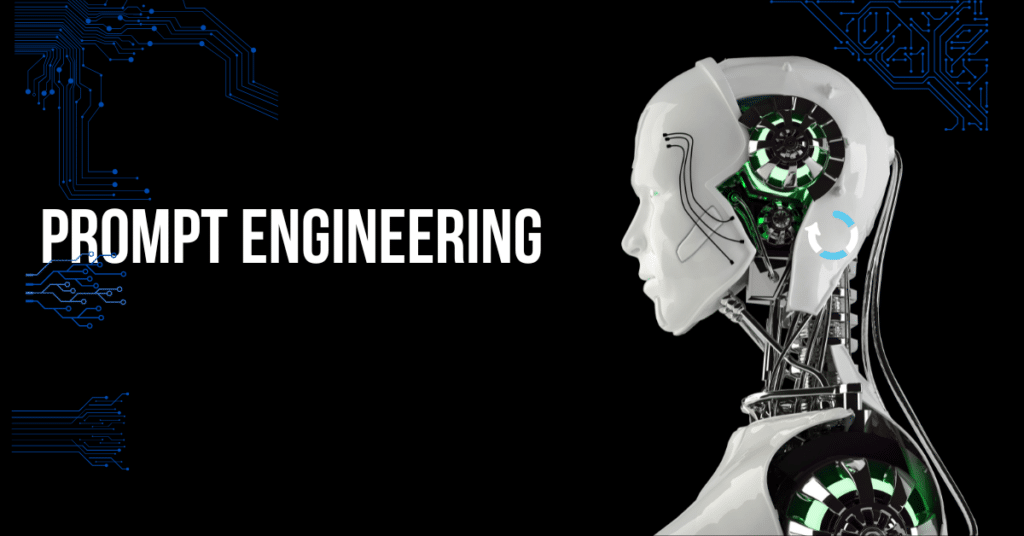With the amazing progress in Artificial Intelligence (AI), a new and exciting career option has emerged called prompt engineering. AI is becoming increasingly important for big companies to improve their efficiency, and they are actively seeking engineers who are skilled in AI techniques.
The best part is these companies are ready to offer generous compensation to attract these experts. Today, we’ll dive into the fascinating field of prompt engineering and give you all the information you need to know. So, let’s get started and explore this unique career path together!
Contents
What is Prompt Engineering?
If you’ve never heard of the term “prompt engineer” before, you might be wondering what it actually means. Well, it’s pretty straightforward. A prompt engineer is someone who specializes in communicating with AI systems like ChatGPT, Midjourney, and others. They know how to give the right instructions to get the AI to do what they want.
Systems like ChatGPT, Midjourney, and Bing AI are designed to be user-friendly, which is why millions of people use them every day. You don’t need much technical knowledge to get started. However, if you want to accomplish more complex tasks, you need to understand how the AI system works and use the right commands to make it work its magic.
Regular users who aren’t familiar with the inner workings of AI systems often rely on pre-made prompts to help them with their everyday tasks. As a prompt engineer, you can create these helpful prompts and make their lives much easier.
Why do You Need to Become a Promt Engineer?
Pretty much every tech-savvy person would be able to open a ChatGPT account, punch in their queries, and get answers. However, only the ones who completely understand the system can deploy prompts that fetch desirable results. To start your career in Prompt Engineering, here are the five tips you must keep in mind:
1. Know the Workings of the System
To tackle a problem effectively, it’s important to understand its origin. The same principle applies when working with an AI model to achieve desirable results. To become a skilled prompt engineer, it’s essential to learn about the AI model’s inner workings from the ground up. One way to do this is by studying the documentation provided by the tool’s parent company.
This documentation will provide insights into the model’s architecture, its capabilities, and even its limitations.
2. Don’t Beat Around the Bush
After familiarizing yourself with the model’s documentation, it’s crucial to develop the skill of crafting the right kind of prompts. Writing basic prompts that yield basic responses won’t make a strong impression on recruiters. You need to demonstrate your ability to create complex prompts that deliver the desired outcomes.
Creating effective prompts for Large Language Models (LLMs) like ChatGPT or Bing AI is a challenging task. Firstly, you need to provide enough context to help the language models process the information accurately. Context is key to guiding AI in the right direction.
Secondly, it’s vital to word your prompt in a clear and unambiguous manner. Even a slight deviation in wording can have a significant impact on the generated results. Precision is essential to get the desired outcome from the AI model.
Lastly, keep in mind that you don’t need to overwhelm the AI model with excessive information all at once. These models have the ability to remember your previous inputs and respond accordingly. You can break down your query into multiple sections, allowing the model to process each part separately and generate a more accurate response.
3. Perfection Takes Time
If you’re a perfectionist who aims to excel at a new task right from the start, you might find prompt engineering challenging. Prompt engineering involves a lot of trial and error. To truly understand how the Large Language Model (LLM) operates, you need to test its limitations and capabilities through various queries. It’s through this iterative process that you’ll gain insights into how to achieve your goals using the specific LLM you’re working with.
When dealing with complex queries, it’s best to break them down into smaller, manageable parts rather than attempting to solve everything at once. You’ll notice that even the smallest changes in your queries can have a significant impact on the generated outcomes. So, don’t be discouraged if your first attempt at writing the perfect prompt doesn’t yield the desired results.
4. Remove Data Biases
AI models themselves are not inherently biased. However, if biased results are being generated, it typically stems from the biases present in the data the model has been trained on. As a prompt engineer, part of your responsibility is to ensure that the data you feed to the LLM is free from biases.
Manually reviewing and filtering massive datasets can be an incredibly time-consuming task. Therefore, it’s more practical to conduct rigorous testing and analysis to identify prompts that might lead to biased answers.
5. Try to Keep Up
Prompt Engineering as a career is a relatively new and exciting profession. The industry is still exploring the vast potential of AI systems, and it may take some time before a universally recognized best Large Language Model (LLM) emerges. As a prompt engineer, it’s crucial for you to stay updated and adaptable.
If you began your journey with prompt writing on ChatGPT, it’s beneficial to expand your expertise by exploring other AI models like Bard, Midjourney, and more. Each model brings its own unique features and capabilities, offering you a wider range of options to accomplish your tasks effectively.
Moreover, it’s important not to limit yourself to just one version of a language model. Developers regularly release new versions of these models with groundbreaking improvements and enhancements. By keeping up with the latest releases and advancements, you can leverage the cutting-edge features and optimizations offered by newer versions.
Your colleagues will likely catch on if you limit yourself to a single AI system or one edition of a certain LLM.
How Much Does a Promt Engineer Earn?
Prompt engineering is still a relatively unconventional profession, and not all big tech companies fully comprehend the potential benefits of AI and the value that prompt engineers bring to the table. However, this also means that there is significant potential for the average salaries of prompt engineers to increase substantially in the future.
Currently, even prompt engineers with non-technical backgrounds can earn impressive salaries, with figures reaching up to $375,000 per year. For instance, according to Bloomberg (via Business Insider), Anthropic, an artificial intelligence safety and research company, was willing to offer a salary range of $280,000 to $375,000 for the position of a “prompt engineer and librarian.”
If you can master the craft of prompt engineering and effectively showcase your flexibility and unique contributions to potential employers, you can make a great career in Prompt Engineering and secure a hefty package.



